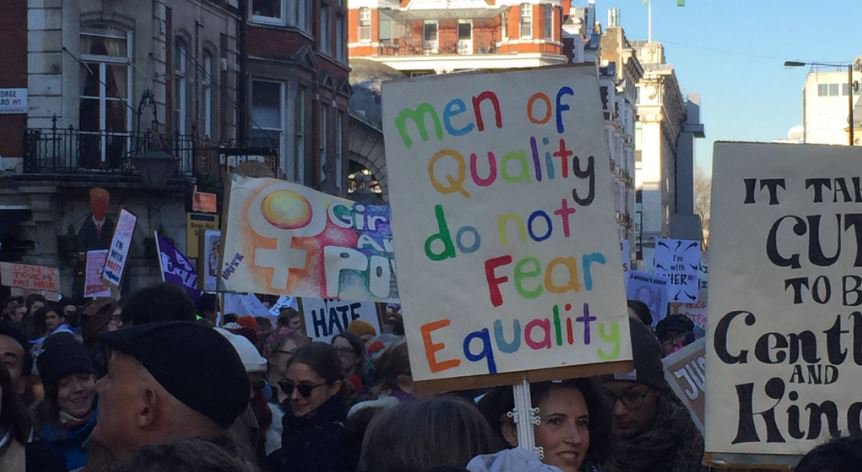‘No Piers Morgan, we don’t need a Men’s March – and we don’t need a Straight Pride either’
By Will Stroude

Piers Morgan is pictured alongside Donald Trump in his Twitter profile, so it came as no surprise when he took to Twitter to announce his plans for a ‘Men’s March’ this week. He was of course inspired by the recent Women’s March, which saw millions of people taking to the streets across the world in support of women’s rights. Although many people were shocked by Morgan describing those who took part as “rabid feminists”, his argument isn’t a new one.
LGBT+ Pride parades tend to get the same sort of response, with the question “why isn’t there a straight Pride?” being voiced by people who are obviously jealous of our flawless ability to lip-sync to Britney. Musical talents aside, Pride parades are an opportunity to recognise the struggles of LGBT+ people throughout history and to celebrate how far our community has come. It’s now possible for us (in the UK at least) to marry the person we love, the law protects us against discrimination, and there’s a growing number of positive LGBT+ role models for young people to look up to.
That being said, not everyone is waving a rainbow flag proudly in the air. Across the UK, young gay people still face homophobic bullying at school – and the repercussions of this can not only be harmful but long-lasting. Equally, their teachers may feel unable to challenge homophobic language, because there’s a lack of policies and training aimed at tackling this issue in schools. In the workplace, many gay men are still afraid to come out, fearful of the reaction of their colleagues and bosses. And for some gay people, coming out can seem impossible in any context.
Beyond our borders, the situation is much worse. In some countries, the basic human rights of gay people are tossed aside, with gay men arrested, tortured or murdered simply because of their sexuality. Whilst leaders of these countries promote a homophobic ideology, normalising hatred towards gay people.
So why do we still need people to march in a Pride parade? Probably for the same reasons why the Women’s March is so important. Not everyone got the memo about equality – some of them were too busy engaging in Twitter spats. Some of them live in countries where the message may not have got through – although the more noise we make, the more chance there is of some of it reverberating around the world via the web.

The Women’s March saw women, gay men and other groups who don’t always get a seat at the table take to the streets to remind society that we’re still here. It has allowed for a new dialogue about equality to be opened, ultimately reminding younger generations that the conversation is far from over. We must continue the revolutionary work of activists from the past in order to bridge the gap between marginalised groups and our wider society. Unfortunately for Trump and Morgan, their resistance to equality has motivated today’s activists even more, providing them with another reason to teach future generations that unity and respect are far better than division and discrimination.
I disagree with those who think Pride marches are an unnecessary and out-dated concept. Just because gay men share the same rights as their heterosexual neighbours doesn’t mean equality has been achieved. The passing of a law doesn’t suddenly brain-wash everyone into thinking being gay is the most fabulous thing since Meryl Streep. Influencing people’s attitudes, so that they become more accepting of others, takes time. Something that is only achievable if people use their voice to challenge discrimination – whilst avoiding certain Twitter accounts, of course.
Hadley Stewart is a London-based writer and journalist. Follow him on Twitter @wordsbyhadley.
More stories:
Sydney is having its biggest party of the year – WIN flights for two!
The Independent used a stock image of a gay couple for a story and homophobes lost it
